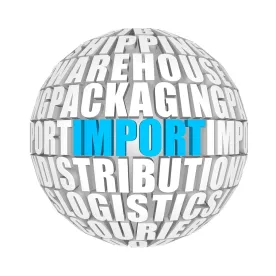Although investigations under Section 337 of the Tariff Act of 1930 have focused on intellectual property rights involving patents, unregistered trademarks or trade secret claims, the language of Section 337 is much broader.
The provision applies to any “unfair methods of competition and unfair acts in the importation of articles.” That language is similar to the Federal Trade Commission Act, which prohibits “unfair methods of competition in or affecting commerce, and unfair or deceptive acts or practices in or affecting commerce.”
In June 2016, decades after the last Section 337 claim based on an antitrust violation had been filed, U.S. Steel alleged, in part, a conspiracy to “fix prices and control output volumes” in order to “restrain or monopolize trade and commerce in the United States” in violation of Section 337, in Certain Carbon and Alloy Steel Products. The International Trade Commission (ITC or the Commission) dismissed the U.S. Steel complaint because the Commission said that U.S. Steel had not pleaded the requisite “antitrust injury” to proceed. In fact, the Commission stated that U.S. Steel, “if given the opportunity to amend the complaint, [] will not be able to plead or demonstrate antitrust injury.” One commissioner, Meredith M. Broadbent, dissented from the ITC decision, arguing that Section 337 confers broad unfair competition jurisdiction on the ITC, and that the Commission should not be constrained by standing requirements under US antitrust laws. She said that Section 337 was intended “to capture within its scope any nefarious practices that distort domestic competition,” and as such, the U.S. Steel petition would have been sufficient and should not have been dismissed. That said, it soon became clear that the Commission decision against U.S. Steel was not meant to foreclose future Section 337 claims based on antitrust violations. In fact, soon after the Certain Carbon and Alloy Steel decision, the ITC initiated an antitrust investigation in Certain Programmable Logic Controllers pursuant to Section 337.
Where does this leave a company interested in pursuing an antitrust-related Section 337 matter going forward?
In the Carbon and Alloy Steel case, U.S. Steel based its Section 337 claim on a violation of the Sherman Act. That Act prohibits contracts, combinations and conspiracies in restraint of trade, including price fixing and market division. The Sherman Act also prohibits monopolization and attempts to monopolize. Specifically, with regard to the U.S. Steel claims that Chinese steel producers conspired to fix prices at below-market levels and control output and export volumes, the ITC determined that U.S. Steel needed to allege that the Chinese respondents had agreed to set prices below a certain level of their cost and that the Chinese respondents had a dangerous probability of recouping their investment (i.e., their predatory below-cost prices). A private plaintiff bringing a Section 337 case, then, would need to plead and prove the same antitrust injury that courts require of private plaintiffs bringing cases under US antitrust laws.
For predatory pricing claims, antitrust injury is shown by pleading and providing evidence of below-cost pricing and recoupment. These two claims are difficult to prove given the logistical hurdles of conducting discovery and obtaining relevant cost and recoupment information in China from Chinese companies. It might have been possible, though, to plead injury based on the anticompetitive conspiracy among Chinese companies to effect price at a level that would not allow U.S. Steel to invest in new technology or to continue to provide quality service to its customers. Section 337 does not limit antitrust inquiries to predatory pricing claims alone.
In fact, in January 2018, Radwell International filed a Section 337 complaint with the ITC requesting that it institute an investigation into certain alleged unfair methods of competition and unfair acts by Rockwell Automation. In its complaint, Radwell alleged several different antitrust-based claims, which it said would “destroy or substantially injure a domestic industry in the United States” and/or “restrain or monopolize trade and commerce in the United States.” These claims included a conspiracy to fix resale prices; a conspiracy to boycott resellers; and monopolization. Just as these claims are substantially broader than the claims made by U.S. Steel, the ability to demonstrate antitrust injury for each of these claims was correspondingly broadened. On March 23, 2018, the ITC issued a notice of institution of investigation into the antitrust-based Section 337 claims brought by Radwell.[1]
What does this mean for a Section 337 litigant going forward?
It means that antitrust lawyers and trade lawyers need to work closely with one another to figure out the best, most credible claims, as well as the arguments, under both antitrust and trade law that will likely be sustained by the ITC. Given the dearth of precedent in this area, it seems that in pursuing antitrust-related Section 337 actions, it is probably best to plead as broad and as comprehensive a set of antitrust claims as possible. Counsel should assess any and all possible antitrust offenses that might be relevant to the facts, and allege, as well as gather evidence of, antitrust injury for each such offense. Alternatively, because the language of the Tariff Act is so broad, prohibiting unfair methods or acts that may “restrain or monopolize trade or commerce in the United States,” a petitioner might avoid the necessity of showing antitrust injury by grounding its complaint only on the language of Section 337.
We believe that Section 337 can become an even stronger tool to exclude certain imports from sale in the US if antitrust claims become a more routine allegation in future Section 337 actions. If this happens, and more precedent is developed, petitioners will be in a much better position to frame their competitive injury arguments going forward.
[1] Ultimately, the ITC rendered no final decision on the merits of Radwell’s allegations as the investigation was terminated prior to a hearing.




 />i
/>i

